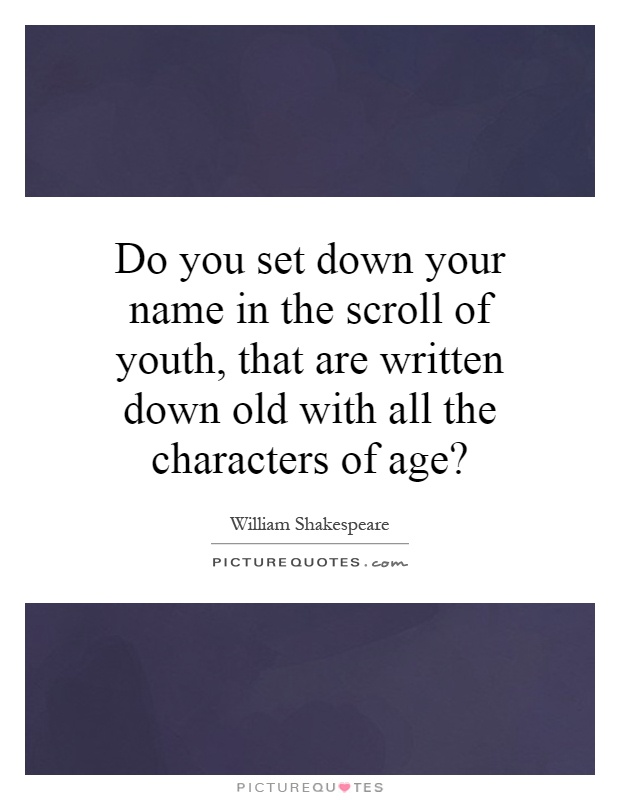Do you set down your name in the scroll of youth, that are written down old with all the characters of age?

Do you set down your name in the scroll of youth, that are written down old with all the characters of age?
In William Shakespeare's Sonnet 22, the poet contemplates the passage of time and the inevitability of aging. The opening line, "Do you set down your name in the scroll of youth, that are written down old with all the characters of age?" poses a profound question about the nature of youth and the impact of time on our physical appearance and identity.Shakespeare uses the metaphor of a scroll to represent the passage of time and the aging process. The scroll is a symbol of history and tradition, with each line representing a different stage of life. By asking whether we set down our name in the scroll of youth only to be written down old with all the characters of age, Shakespeare is questioning the fleeting nature of youth and the inevitability of growing old.
The poet suggests that despite our best efforts to preserve our youth and vitality, we are ultimately subject to the ravages of time. Our names may be written down in the scroll of youth, but as we age, we are inevitably marked by the characters of age. This idea of being "written down old" with the characters of age implies that our physical appearance and identity are shaped by the passage of time, regardless of our desires or intentions.
Shakespeare's Sonnet 22 reflects the universal experience of aging and the bittersweet realization that youth is fleeting. The poet's contemplation of the scroll of youth serves as a reminder of the transience of life and the importance of cherishing each moment. Ultimately, Shakespeare's exploration of the themes of youth and aging in this sonnet serves as a poignant meditation on the passage of time and the inevitability of growing old.












 Friendship Quotes
Friendship Quotes Love Quotes
Love Quotes Life Quotes
Life Quotes Funny Quotes
Funny Quotes Motivational Quotes
Motivational Quotes Inspirational Quotes
Inspirational Quotes